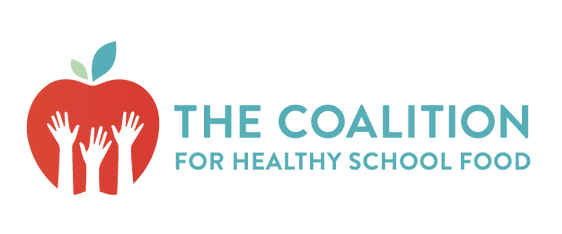The Sandbox Project welcomes the announcement of $1 Billion in funding for a National School Program. This marks a significant step towards ensuring every child has access to nutritious meals, regardless of their socio-economic background.
Taken from the Coalition for Healthy School Food website. To visit, please click here
TORONTO, April 1, 2024 - The Coalition for Healthy School Food, Canada’s largest school food network, welcomes, with great enthusiasm, today’s announcement by the Government of Canada of $1 billion over 5 years for a National School Food Program. This investment will make a significant positive difference in the lives of children and families throughout the country.
“We are thrilled that the Government has taken this momentous step for Canada and joined the rest of the G7, and most other countries in the world, in recognizing the critical importance of school food,” said Debbie Field, Coordinator of the Coalition for Healthy School Food. “As a coalition of hundreds of community-based organizations and many thousands of parents and teachers, we have been working for years to build provincial and territorial investments and do what we can to support school food programs throughout the country. We are delighted that the federal government will partner with provinces, territories, Indigenous leadership and our broader movement to build a strong national school food program that is efficient and responsive to the needs of children, their parents, educators and communities across Canada.”
A national school food program is needed now more than ever. Inflation and affordability pressures mean that more and more families are finding it difficult to access nutritious food, with food insecurity affecting 1 in 4 children (nearly 1.5 million students). Amberley T. Ruetz, Postdoctoral Fellow at the University of Saskatchewan, shared that “school meals can immediately take pressure off household budgets, saving families between ~$130 to $190 CAD per child per month on grocery bills. A national school food program will improve student diets, which are poor across all socio-economic backgrounds, and strengthen communities and the local economy, creating demand for locally grown, produced and sourced food. Overall, universal free school meals have an impressive return on investment - 2.5x - 7x return in human health and economic benefits.”
The Coalition offers its deep thanks, on behalf of the movement, children, and families throughout the country, to Prime Minister Trudeau, Minister Freeland (Finance and Deputy Prime Minister), and Minister Sudds (Families, Children and Social Development) as well as countless other decision-makers who have made this investment possible. A national school food program will join universal child care and the Canada Child Benefit as crucial family supports, just as universal healthcare and publicly funded K-12 education have transformed lives over the past decades.
"With the continued increase in food prices and rising student demand, organizations like ours, that provide meals to thousands of students every day, need investment more than ever,” said Thibaud Liné, executive director at Quebec’s La Cantine pour tous. “We welcome the federal government’s move to join with the provinces and territories to fund these vital programs.”
Tyler Arsenault, Regional Student Nutrition Program Manager for the Hamilton-Niagara region in Ontario, agreed: “Since the start of COVID-19 we have seen a forty percent increase in the number of children and youth that participate in our Student Nutrition Program. When combined with the rising cost of food, these financial pressures have made it so that programs have had to limit the number of days they offer food despite record-breaking fundraising efforts. Some schools remain on waiting lists. Today’s announcement is incredibly welcome; I know that countless individuals, who have been working so tirelessly to nourish students to support their learning, development, academic and future success, are feeling enormous relief and celebration.”
“This investment will play a pivotal role in helping to prevent hunger and promoting healthy eating among kids in Canada,” said Doug Roth, CEO of Heart & Stroke. “Evidence shows that school food programs help to produce better health and educational outcomes. Increased consumption of healthy foods can reduce the risk of heart disease and stroke as well as other chronic conditions."
Daniel Bierstone shared “as a pediatrician working in school-based clinics within some of Toronto’s most underserved communities, I treat children for a variety of school-related concerns including ADHD, autism, anxiety, and learning challenges. We know from studies - and I have seen it among my patients - that kids who eat a morning meal experience less hunger, headaches, stomach aches, and dizziness – all things that impact students’ functioning at school. I often breathe a sigh of relief when I find out that my patient has a snack or meal program in their school. I know that this will increase their chances of not going to school hungry and accessing healthy food. The federal government’s investment today will make an enormous difference for the lives of children and families across the country.”
The President of the CTF/FCE, Heidi Yetman, emphasized the importance of this investment, stating that it is not just a matter of policy but a moral imperative. “With more families struggling to afford basic necessities, including food, the implementation of a Universal School Food Program is necessary to ensure that students have access to nutritious meals. This program will also contribute greatly to creating more conducive learning environments and supporting students’ overall success”.
Since it was established in 2014, the Coalition has been calling for a program that is in line with its 8 Guiding Principles, specifically that supports healthy eating, is universally accessible without stigma, is cost-shared, flexibly supports different program models to meet the unique needs of communities, is controlled by Indigenous leadership in Indigenous communities, is a driver of community economic development, promotes food literacy, and is supported by conflict-of-interest safeguards.
"We look forward to seeing how these programs will continue to strive towards health promotion in how they are implemented, and how they will be supported to bring in locally grown foods, including Indigenous traditional foods," said Sydney Richards, Director of Indigenous Programs and Partnerships at Canadian Feed the Children and Co-Chair of the Indigenous School Food Circle. "We ask the federal government to honour its commitment to advance reconciliation with Indigenous Peoples by prioritizing Indigenous food sovereignty in these programs, as well as by negotiating agreements for independent distinctions-based school meal programs with Indigenous leaders."
A universal school food program has the potential to be a game changer in the pursuit of food sovereignty” said Wendie Wilson, with the Pan-Canadian African Food Sovereignty Network. “I would love to see this funding work towards boosting economics for families who are most impacted by food insecurity. Giving low income families the opportunity to provide meals for their communities using local food and resources can promote gainful employment and business opportunities that will help alleviate issues around income. If we are interested in making the greatest impact it is imperative that we localize the procurement of school food. With 36% of Black children and over 50% of Indigenous children in Canada being food insecure it would be advantageous to prioritize these communities for procurement and economic opportunities.”
Jesse Veenstra, Executive Director at Farm to Cafeteria Canada, spoke about how a coordinated school food program “has enormous potential to create more stable and predictable markets for farmers and other food providers. Across the country schools are eager to connect with the people who grow and produce food in and for their communities, and the Food and Agriculture Organization of the United Nations has identified public food procurement, which includes school food programs, as having significant potential to support food system transformation and healthy diets.”
Samantha Gambling, Provincial Lead of the BC Chapter of the Coalition for Healthy School Food, has been supporting conversations with youth in BC to ask what they would like to see in a school food program. Youth have said that they want to see food programs that are affordable, that involve students, where the food is nutritions, balanced and flavourful, and that includes foods traditional to their cultures. Samantha shares that “I know how much students want a quality school food program. I’m so pleased that this federal investment will bring us a step closer to their vision.”
Lindsay Corbin, Coordinator of the Nova Scotia Coalition Chapter points to how "this historic announcement complements investments made by other levels of government, culminating in a unified effort to nourish children so they can reach their potential. Nova Scotia recently joined a growing list of provinces, territories and municipalities making significant school food investments. As the largest school food network in Canada, the Coalition for Healthy School Food looks forward to supporting the development of successful programs in the many diverse communities throughout the country. There is no ‘one size fits all’ program. Instead, we’re ready to tap into the wisdom of students, families, and staff to understand their needs and assets, and then use our experience and academic expertise to work with them on solutions."
Today’s investment closes the loop on the government’s 2021 election platform commitment to invest $1 billion over 5 years and will enable them to advance the health, wellbeing, and academic performance of Canadian children and youth throughout the country, making sure that they can access nutritious food, are ready to learn, and are set up to succeed each school day. This federal leadership will also catalyze additional investments from provinces and territories, municipalities, and other sources by building a more solid foundation for strong school food programming.
About the Coalition for Healthy School Food
The Coalition for Healthy School Food’s 298 member organizations, 140 endorsers including organizations, agencies and municipalities, and thousands of supporters from across Canada, including active school food providers, academics, and experts, advocate for the creation of a universal cost-shared school food program for Canada that would see all K-12 students having daily access to healthy food at school. Building on existing programs across the country, the Coalition envisions that all schools will eventually serve a healthy meal or snack at little or no cost to students. These programs will include food education and serve culturally appropriate, local, sustainable food to the fullest extent possible. See our guiding principles for what our ideal school food program looks like.






